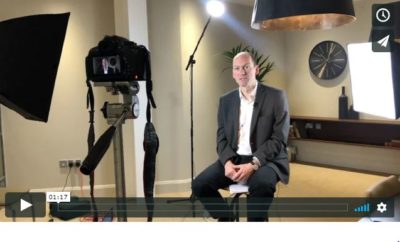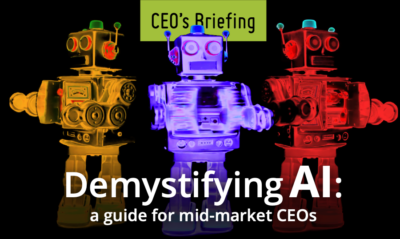Introduction to Office Automation Using Software Robots
Look around an office and you will see plenty of people whose main work is dealing with systems and information....
Read moreLook around an office and you will see plenty of people whose main work is dealing with systems and information....
Read moreIt can be a lucrative opportunity when you get the chance to provide products or services to corporate clients. Large,...
Read moreThis is the first in our four-part series on Digital Transformation. Many mid-sized businesses see IT simply as an ongoing...
Read moreCompanies often contact us because they want to hire an Interim Chief Information Officer (interim CIO) and they are looking...
Read moreThere is suddenly a lot of urgency around artificial intelligence and what it will mean for the future of business....
Read moreIn an increasingly competitive market, the best 3rd party logistics (3PL) firms capture the lion’s share of the opportunities. IT...
Read moreClick on the download button for our full CEO's briefing on overcoming bespoke software problems or read our short 15...
Read morePlain English board-level briefings focused on technology strategies to deliver competitive advantage and business success.
You can unsubscribe at any time.
Call us on 0203 020 1864 with any questions.
Graeme Freeman
Co-Founder and Director
Plain English board-level briefings focused on technology strategies to deliver competitive advantage and business success.
You can unsubscribe at any time.
Call us on 0203 020 1864 with any questions.






